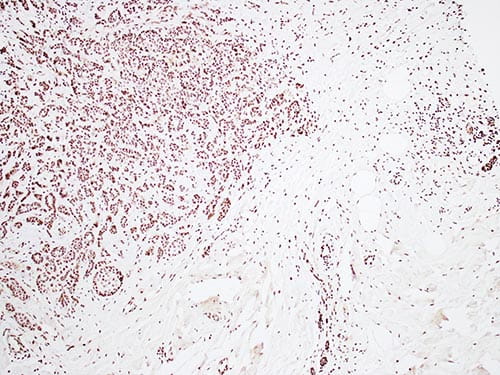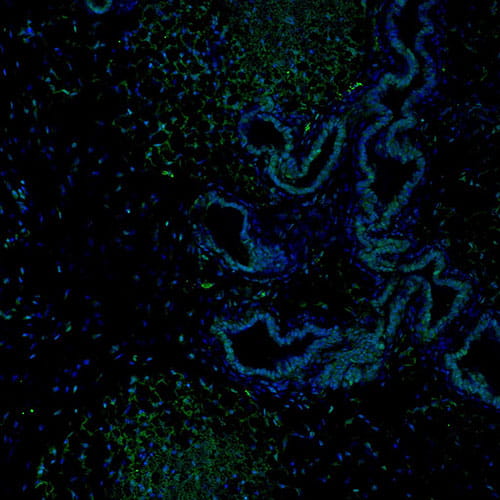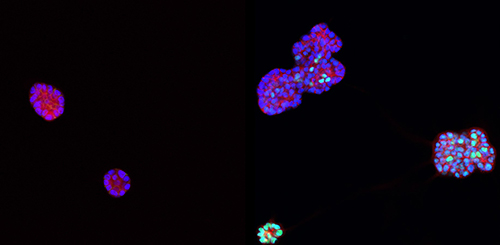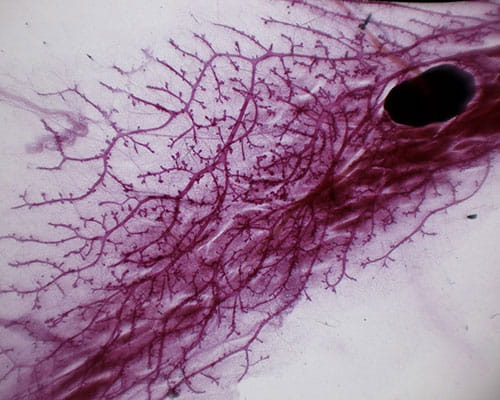The DEK Oncogene
First discovered as a fusion protein with CAN/NUP214 in acute myeloid leukemia, DEK is a potent oncogene that is transcriptionally upregulated in most solid tumors tested to date. Current understanding is that DEK can alter the topology of nucleic acids in numerous biological processes including DNA replication, DNA repair, chromatin organization and epigenetic modification, transcription, and mRNA splicing. This wide array of processes influenced by DEK expression results in numerous oncogenic effects when DEK is over-expressed, including increased cellular proliferation, tumor metastasis, additional cancer stem cells, and possibly chemotherapeutic resistance. Furthermore, high DEK expression in tumors correlates with poor survival and more aggressive disease.
The Privette Vinnedge laboratory, which was the first to characterize the oncogenic activity of DEK in breast cancer, has since discovered that DEK regulates the expression of numerous downstream oncogenes that create a tumor-promoting microenvironment. In particular, we have shown that DEK promotes WNT signaling to drive tumor proliferation and metastasis. Current studies are investing how the biochemical function of DEK results in an oncogenic transcriptome, including the co-regulation of a cohort of Wnt ligand genes. Additional studies are further investigating how DEK expression in tumors contributes to aggressive breast cancer phenotypes and manipulates the anti-tumor immune response.







